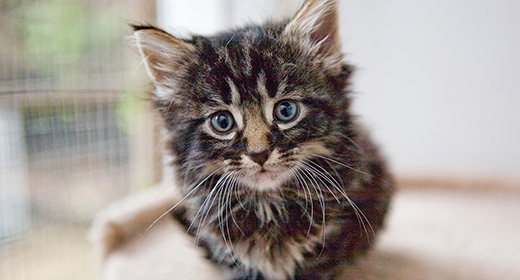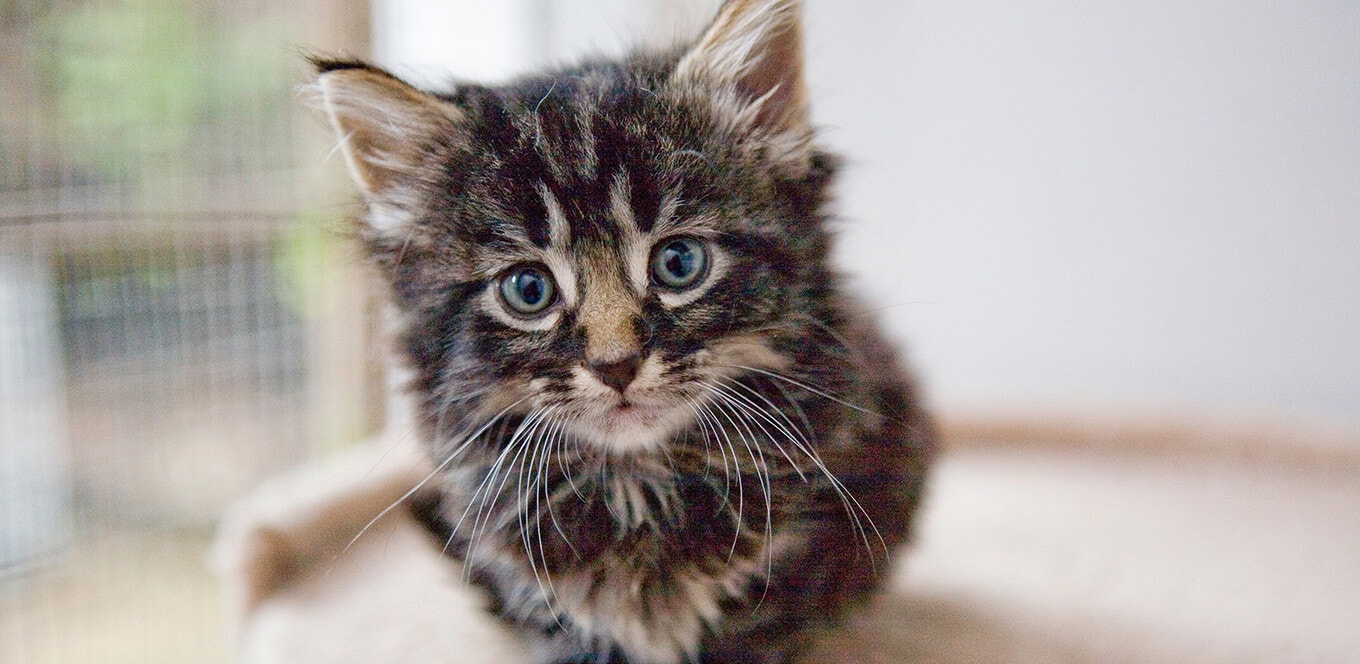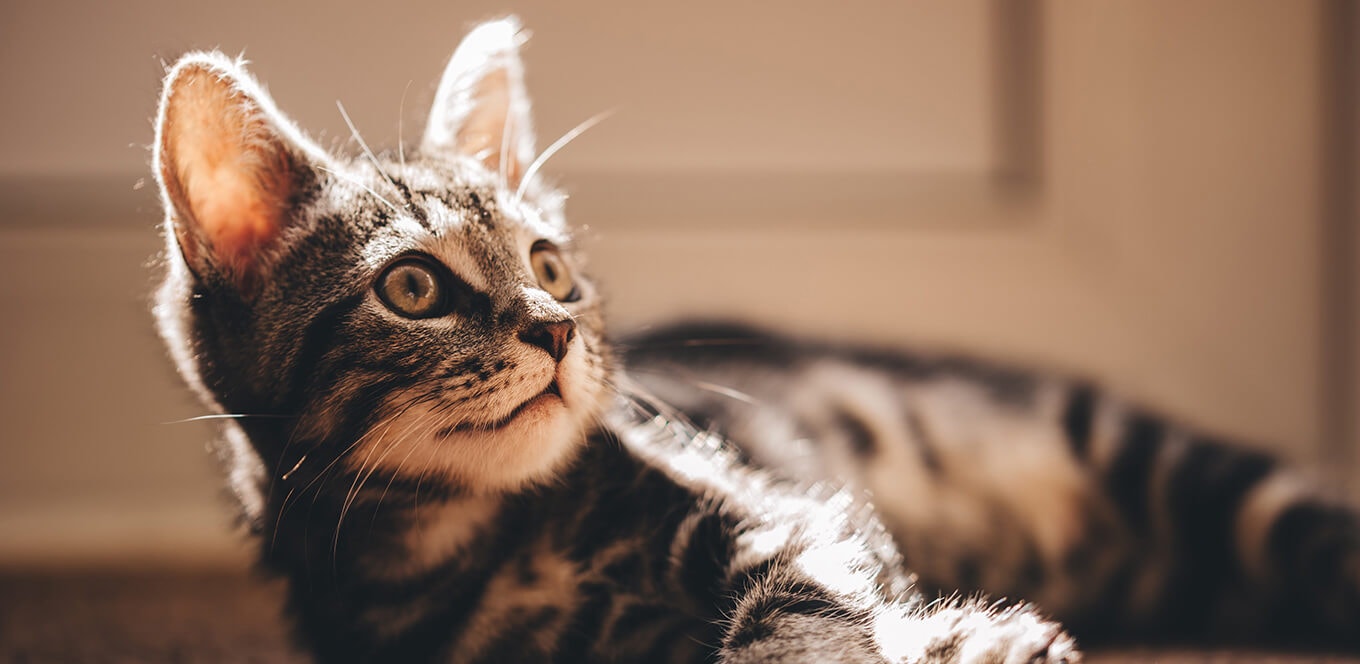

A newborn cat brings endless love and laughter to any household. However, as a new kitten parent, it is important to understand that caring for a kitten is not just about feeding and playing with them. Kittens have specific dietary needs, and it is important to provide them with high-quality kitten food that meets their nutritional requirements. Regular grooming, vaccination, and preventive care are essential in keeping your kitten healthy and free from diseases. This guide will give you all the information you need to raise a healthy kitten and ensure that it grows into a happy and healthy adult cat.
Check out the below table to understand how a cat develops with time:
Age | Milestone |
5 to 6 months old | Sexual maturity |
8 months old | Full set of adult teeth |
9 months old | Comparable digestion ability to adult |
12 months old (female) and 18 months old (male) | Reach adult body weight |
Between 10 to 12 months of age | Energy requirements go down to adult levels |
Want to know how old your cat is in human years? Check out the below table and find out:
| Life stage | Cat age | Cat age in human years |
|---|---|---|
| Kitten | 0 to 1 month old | 0 to 1 years old |
| 2 months old | 2 years old | |
| 3 months old | 4 years old | |
| 4 months old | 6 years old | |
| 5 months old | 8 years old | |
| 6 months old | 10 years old | |
| Junior | 7 months old | 12 years old |
| 12 months old | 15 years old | |
| 18 months old | 21 years old | |
| 2 years old | 24 years old | |
| Adult | 3 years old | 28 years old |
| 4 years old | 32 years old | |
| 5 years old | 36 years old | |
| 6 years old | 40 years old | |
| Mature | 7 years old | 44 years old |
| 8 years old | 48 years old | |
| 9 years old | 52 years old | |
| 10 years old | 56 years old | |
| Senior | 11 years old | 60 years old |
| 12 years old | 64 years old | |
| 13 years old | 68 years old | |
| 14 years old | 72 years old | |
| Super senior | 15 years old | 76 years old |
| 16 years old | 80 years old | |
| 17 years old | 84 years old | |
| 18 years old | 88 years old | |
| 19 years old | 92 years old | |
| 20 years old | 96 years old | |
| 21 years old | 100 years old | |
| 22 years old | 104 years old | |
| 23 years old | 108 years old | |
| 24 years old | 112 years old | |
| 25 years old | 116 years old |
In conclusion, raising a healthy kitten requires a lot of care and attention, but with the right knowledge and commitment, you can ensure that your kitten grows into a happy and healthy adult cat. Always consult your veterinarian for any questions or concerns, and don't hesitate to seek advice or guidance. With the right care and love, your kitten will bring you years of joy and companionship.
Signs of a healthy kitten include clear eyes, a clean coat, and a healthy appetite. It should also have a high-energy level to stay active. Regular check-ups with a veterinarian can also ensure your kitten is in good health.
Regular veterinary check-ups, proper nutrition and exercise as well as keeping up with vaccinations and preventative care are important for maintaining your kitten's health.
Kittens can be susceptible to a variety of health issues, including upper respiratory infections, worms, as well as flea and tick infestations. They can also develop chronic conditions such as diabetes or heart disease later in life.
Kittens are vulnerable to a variety of health issues, but with proper care and regular veterinary check-ups, they can stay healthy.
Kittens do need to drink water to stay hydrated, but the exact amount will vary depending on factors such as their age, size, and activity level. Consult with a veterinarian for specific recommendations.




Cats are said to be one of the most intelligent creatures on this planet. They are the ideal embodiment of agility, mobility, speed, and grace. However, between ages 1 to 8, cats go through numerous transitions, equivalent to a teenager transitioning to middle age. As a caregiver, you need to ensure that you provide your cat with everything it needs to stay healthy – rich sources of nutrition, freshwater, etc. A cat's health needs to be monitored closely and any abnormalities should be reported to the vet. In fact, pet parents should care for their cat right from its kitten stage. It will help you keep any older cat health problems at bay in the long run. If you are unaware of how to care for cats between ages one to eight, read on. We made a list of everything that you need to know about caring for a cat!
As a first-time pet parent, it can be difficult to navigate your way through your cat’s needs and wants. Here are a few things you must ensure to keep your cat healthy:
Cats have a habit of licking their fur to groom themselves. This results in the production of hairballs in their system. Brushing or combing your cat daily can help reduce the number of hairballs in its digestive tract. This is a simple way to make grooming easy for your feline friend and help keep its system clean.
Cats are carnivores, they rely on meat as their primary source of nutrition. Pet parents must remember to include meat in their cat’s diet. Avoid feeding dry food in large quantities, as it can have a negative impact on your cat’s health. Cats derive most of their water intake from the food that they consume. Canned foods contain almost 78% water, whereas dry food contains only 5% to 10% water. So, too much dry food or only dry food can leave your cat dehydrated. And dehydration is one of the leading causes of older cat health problems. So, keep your cat nourished and hydrated at all times.
At IAMS™, our range of wet cat food not only contains high-moisture levels but also proteins, vitamins, and minerals. We make sure that your cat receives all the right nutrients to have a shiny coat and healthy immune system.
As far as litter boxes go, every cat should have its own. It is also advised for pet parents to keep an additional box for emergency situations. Furthermore, placing litter boxes at the right location is also important. People usually place litter boxes under their furniture, in the basement, or in dark corners. Cats may not always be comfortable with such settings. They prefer having an eye on their surroundings while doing the business. So, if you notice that your cat is not using the litter box, try changing its location.
It is frustrating when your cat does not use the litter box and dirties other areas of your home. The best way to resolve this issue is by finding out why it is doing so. First, take your cat to the vet to rule out any cat health problems like urinary tract infections. If illnesses are not the root cause, try changing the location as well as the litter box.
Another issue that pet parents face is their cat scratching different surfaces or ripping home decor fabric to shreds. Scratching is an instinctive behavior for cats. They do so to express different emotions. Many cat parents are oblivious to the fact that their pet needs a scratching post. Place it in a spot where your cat can easily notice it. You can also sprinkle some catnip on the post to attract your cat.
Neutering or spaying your cat is beneficial in multiple ways. Cats generally get aggressive as they go into heat. Female cats are very uncomfortable during this period and unneutered male cats tend to fight with each other. These fights can also result in the transmission of diseases through scratches and bites. Other than that, female cats can conceive at just four months of age, and raising a kindle of kittens can be stressful.
If you are a new cat parent, you must keep an eye out for common cat health issues. Going for routine health check-ups is highly recommended so that you can spot any early signs of kitten health problems.
Vomiting is one of the most common cat health issues and it can happen due to many reasons. Your cat can vomit because of hairballs, eating something inedible, diabetes, urinary tract infection, etc. If you notice your cat heaving abdominally or drooling, take it to the vet immediately.
Fleas bother almost all furry pets and are a common cat health problem. Fortunately, this is a problem that can be treated easily. Look out for signs such as:
Hair loss
Skin infections
Excessive scratching and itching
Frequent licking
Regardless of any signs, pet parents are recommended to get their cats checked for fleas regularly.
Female and male cats who are unfit, overweight, or consume a lot of dry food tend to get FLUTD. Co-existing with multiple cats, sudden lifestyle changes, and stress can also influence the occurrence of this disease. Here are a few symptoms that cat parents can look out for:
Dehydration
Loss of appetite
Frequent vomiting
Visible discomfort while urinating
Licking around the genitalia
Blood in their urine
Urinating outside the litter box
Your vet can recommend the right treatment according to the type of FLUTD your cat has.
Eye problems can occur because of many reasons such as glaucoma, cataracts, conjunctivitis, inflammation, different viruses, retinal diseases, and trauma. Symptoms that suggest eye problems include watery eyes, red eyes, gunk deposits in one or both eyes, cloudiness, white or red lining, and squinting. The best you can do is wipe off any dirt or gunk from your cat’s eyes and take it to the vet.
Eating spoiled foods, liver diseases, cancer, infection, The most common positive sign of great health in cats is grooming. In fact, they might even attempt to groom other pets or you. If you notice your cat licking you, that means it is trying to groom you, suggesting that they feel comfortable around you and trust you.and other health issues can cause diarrhea in cats. Common symptoms of diarrhea are watery or loose stools. This condition can last for days, weeks, or months, depending on the cause. If your cat is suffering from this condition, make sure you provide it with a lot of fresh water and take it to the vet.
You now know how to provide and care for your cat, and what problematic signs you need to look out for. Now let’s explore the signs of good cat health:
Playful pets are happy pets. A playful cat loves to run and jump around, or play with toys as well as their pet parents. This suggests that it likes its surroundings and has bonded with its caregivers.